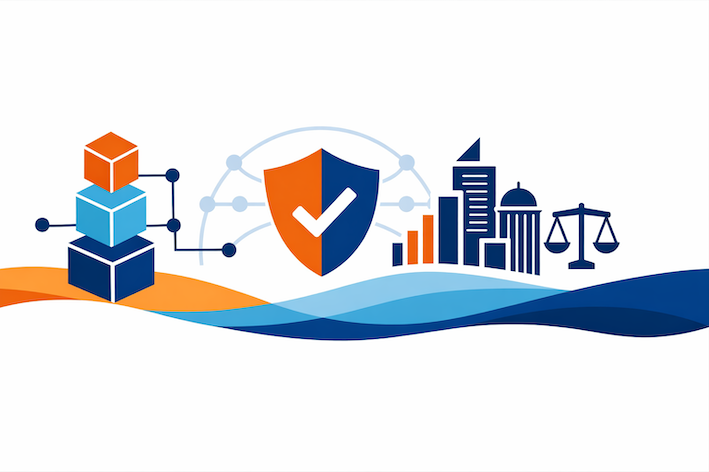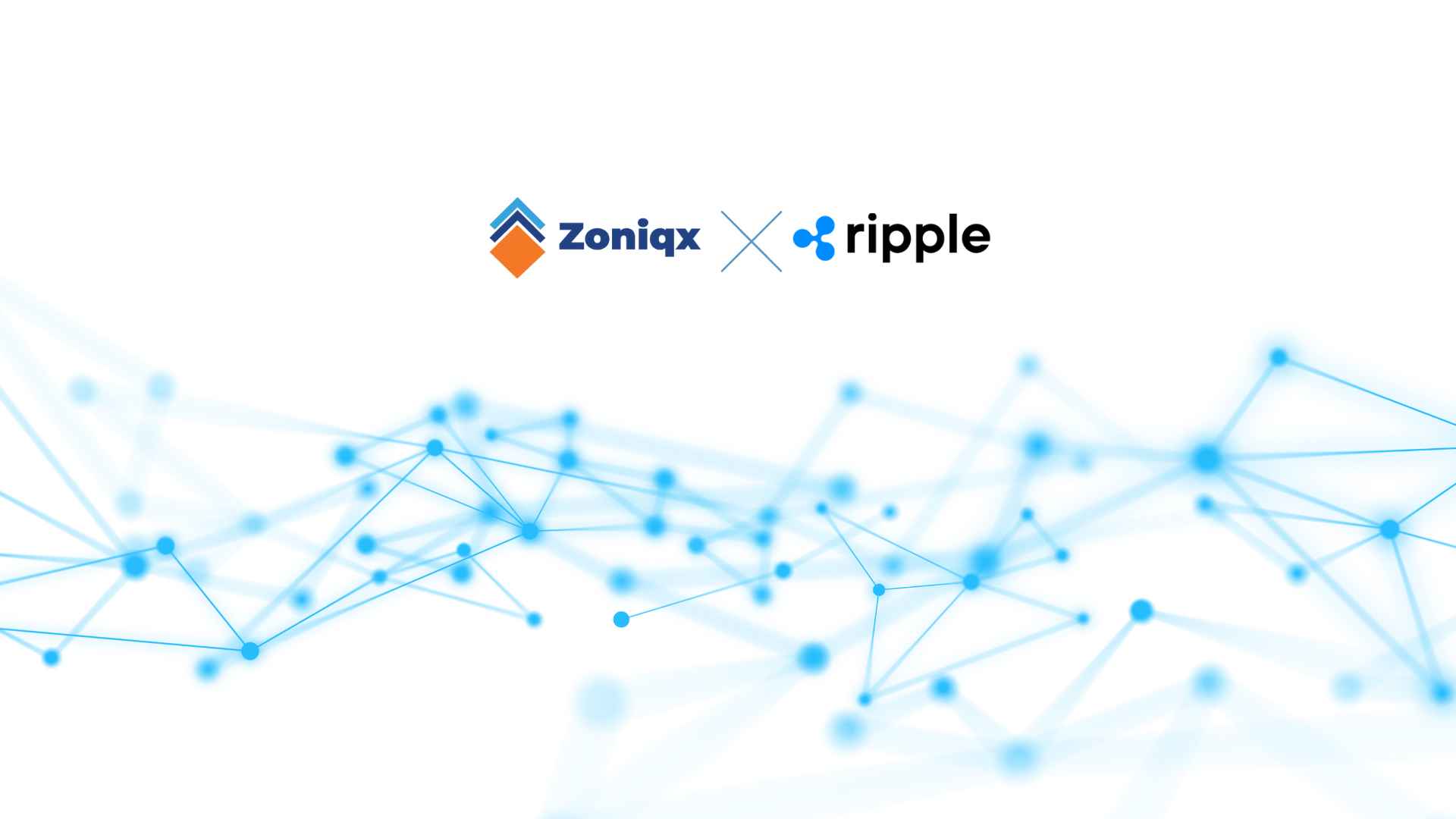Lessons from SEC v. Ripple and Others: The Case for Embedded Compliance
Abstract
The past few years have marked a turning point in digital asset regulation, with landmark enforcement actions by the U.S. Securities and Exchange Commission (SEC) against Ripple, Terraform Labs, and others signaling that compliance must be proactive. These cases expose vulnerabilities in token launches and management when legal safeguards are applied late. This article examines lessons from these legal battles and advocates for embedded compliance, integrating regulatory protections into token infrastructure from inception. We explore how Zoniqx empowers issuers to navigate this landscape confidently.
1. Introduction
As blockchain innovation accelerates, regulatory scrutiny intensifies. In the U.S., the SEC has escalated enforcement actions against crypto projects, alleging violations like unregistered securities offerings and misleading investor communications. Cases such as SEC v. Ripple, Terraform Labs, and others highlight the need for compliance to be foundational, not reactive. These legal battles signal a shift in applying existing laws to digital assets.
Embedded compliance, which is ensuring regulatory alignment from token design to distribution, is now critical. For teams launching or scaling digital assets, the question is how soon compliance can be implemented. This article examines key legal precedents shaping digital asset regulation and outlines how Zoniqx’s solutions enable compliant token launches from day one.
2. Case Summaries & Key Takeaways
2.1 SEC v. Ripple Labs
In 2020, the SEC filed a lawsuit against Ripple Labs, alleging that its sale of XRP constituted an unregistered securities offering. The case centered on whether XRP met the Howey Test criteria for a security. In July 2023, Judge Analisa Torres ruled that XRP itself is not a security when sold to retail investors on exchanges, but institutional sales of $728 million constituted securities transactions.
In May 2025, Ripple and the SEC reached a settlement agreement proposing a $50 million penalty (down from $125 million) and dissolution of the injunction against Ripple. However, on June 26, 2025, Judge Torres rejected this motion, citing concerns about removing the injunction due to a “reasonable probability” of future violations. Ripple dropped its cross-appeal on June 27, 2025, accepting the original $125 million penalty, effectively closing the case.
Key takeaway: Token classification depends on the context of the sale. How, to whom, and for what purpose a token is sold can trigger securities laws, even for utility tokens. Institutional fundraising requires embedded compliance to avoid regulatory fallout.
2.2 SEC v. Terraform Labs and Do Kwon
The SEC charged Terraform Labs, behind TerraUSD (UST) and LUNA, after their 2022 collapse, alleging fraud and unregistered securities offerings. The case settled in May 2024, with Terraform agreeing to penalties, highlighting misleading stability claims.
Key takeaway: Projects emphasizing returns or stability without transparent risk disclosures may be treated as investment contracts, amplifying legal risks without compliance guardrails.
2.3 SEC v. LBRY
In 2022, a court ruled that LBRY’s LBC token was an unregistered security, despite its use in a decentralized platform, focusing on the economic substance of its distribution.
Key takeaway: Tokens with utility can still fall under securities law if sold as investments, emphasizing compliance at the distribution layer.
2.4 SEC v. Coinbase
In June 2023, the SEC alleged Coinbase operated as an unregistered broker and exchange, offering unlawful staking services. In February 2025, the SEC dismissed the case, citing a shift toward transparent regulation via its Crypto Task Force.
Key takeaway: The dismissal suggests a move toward rulemaking, favoring projects with proactive compliance, though legal uncertainties persist for exchanges.
Key takeaway across cases: Utility tokens and platforms face scrutiny if compliance is overlooked. The SEC applies traditional securities frameworks, necessitating embedded compliance from inception.
3. The Problem with “Compliance-as-a-Service” After the Fact
Many projects prioritize development and fundraising, treating compliance as an afterthought. This “compliance-as-a-service” approach is inadequate in today’s enforcement landscape. Retroactive compliance exposes projects to legal, financial, and reputational risks, as seen in SEC actions.
Post-launch legal counsel or third-party tools often fail to address jurisdictional nuances or transaction types. Remediation costs (penalties, delisting, or shutdowns) far exceed preventive measures. Compliance must be intrinsic to token design, not a modular addon. Embedded compliance aligns token activities with regulations from inception, reducing risks and enhancing resilience. This approach is becoming a prerequisite for success in Web3.
4. The Zoniqx Solution: Embedded Compliance at Every Step
Zoniqx addresses the challenge of launching tokenized assets in a complex regulatory landscape. Its Tokenization Platform as a Service (TPaaS) and Dynamic Compliant Interoperable Security Token (DyCIST) integrate compliance into token architecture, eliminating retroactive interventions.
Key features include:
• Jurisdictional Whitelisting: Restricts token access based on regional regulations.
• Programmable Compliance Rules: Smart contracts enforce eligibility, restrictions,
and vesting.
• Integrated KYC/AML Screening: Ensures participant compliance.
• Ongoing Monitoring & Reporting: Supports transparency and audit readiness.
• Interoperability: Simplifies cap table and asset management.
Zoniqx’s configurable solutions suit various asset classes and jurisdictions, enabling startups and institutions to focus on innovation while staying compliant.
5. Conclusion
Cases like SEC v. Ripple demonstrate that compliance is non-negotiable. Enforcement actions clarify expectations for token design and distribution. The future belongs to projects balancing innovation with accountability. Zoniqx’s platform empowers issuers to embed compliance from inception, ensuring regulatory resilience and competitive advantage. As scrutiny persists, proactive compliance is essential for Web3 success.
Disclaimer
This article is for informational purposes only and does not constitute legal, financial, or regulatory advice. Readers should consult qualified advisors before undertaking related activities.
About Zoniqx
Zoniqx, a Silicon Valley-based fintech leader, specializes in real-world asset tokenization
using AI-driven multi-chain technology. Its platform ensures secure, compliant tokenization, supporting diverse asset classes and global liquidity.
To explore how Zoniqx can assist your organization in unlocking the potential of tokenized assets or to discuss potential partnerships and collaborations, please visit our contact page.


.jpg)
